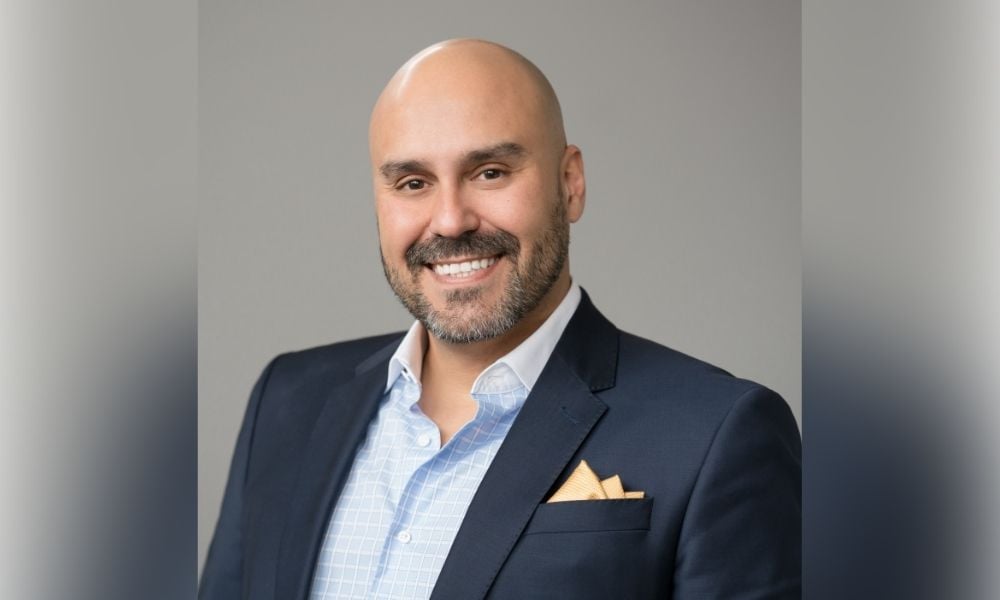The executive says the qualifying rate increase has been punitive to homebuyers and negatively affected the market

With 2021 representing one of the most madcap years in living memory for Canada’s mortgage market, arguably its biggest moment was at the beginning of June as changes to the mortgage stress test qualifying rate took effect.
That hike, introduced by the Office of the Superintendent of Financial Institutions (OSFI) for uninsured mortgages and swiftly followed by federal finance minister Chrystia Freeland for their insured counterparts, saw the minimum rate rise to 5.25%, or the contract rate plus two points – whichever number was higher.
It was viewed as an effort to introduce some kind of cooldown to a housing market that had continued to shatter all records throughout the year, although mortgage industry leaders doubted its potential to cause positive change.
Whatever the case, the stress test hike had little impact on Canada’s barnstorming housing surge, with the MLS Home Price Index (HPI) posting an 8% overall increase in the final three months of last year and the country’s overall number of transactions in 2021 (667,000) rising by a stunning 21% over 2020.
Now, a prominent member of the industry has called for that hike to be reassessed, describing it as one of the “major issues” in Canada’s real estate market and a measure that imposes excessive restrictions on would-be homebuyers.
“It’s punishing people that are making average incomes,” Terry Kilakos (pictured top), president of the Quebec-based North East Real Estate & Mortgage Agency, told Canadian Mortgage Professional.
Read next: Mortgages in 2022 – Four trends to look out for
“The teachers who are earning anywhere between $70,000 and $90,000 a year can’t buy a home for their family unless it’s two income earners that are in the house. The other thing that’s happening with the stress test is that it’s causing people to not be able to sell their house and upgrade to another one.”
That means that a growing number of Canadians who are unable to buy a new house because of the higher qualifying rate choose to stay in their homes and renovate their current properties, said Kilakos – a trend that’s only exacerbating the growing housing supply crisis in the country.
“The guy that’s making x amount of dollars, when their house hits $500,000, they would say, ‘I think it’s time we sell – we can upgrade our home,’” he said. “They can’t upgrade now because of the stress test. So, what do they do? They stay put. And that’s causing a lack of inventory in the market.”
Still, the higher stress test looks like it could be here to stay, particularly with the issue having barely registered as a discussion point in last September’s federal election campaign.
The Liberal Party’s manifesto pledged to reduce Canadians’ monthly mortgage costs but made no mention of the qualifying rate, while Erin O’Toole’s Conservatives said they would fix the stress test to stop “discriminating” against contractors, non-permanent employees and small business owners – but finished a distant second in the September election.
Last month, OSFI indicated that it would keep the stress test rate at its current level, signalling no plans to either further increase or decrease its level.
Read more: OSFI issues stress test update
That supply problem is as pronounced in Kilakos’ home market of Quebec as elsewhere in Canada, with many clients still on the market for a property months after being preapproved.
“Because there’s no inventory, prices are continuing to go up and we have a lot of buyers that came in for preapprovals at the tail end of last year,” he said. “We followed up with them and asked them if they found anything, and 95% of them pretty much said the same thing: ‘There’s nothing on the market. We’re not going to buy now – we’re going to wait until January or February.’”
That also means an uptick in refinancing is likely on the cards as homeowners choose to renovate or remodel their property because they’re not able to purchase a new one in the current climate. It’s a trend that’s not likely to fade while supply scarcity continues.
“What people who were thinking about selling their houses ended up doing is deciding to do renovations and extensions, and we did a lot of those mortgages where people wanted to stay put and upgrade their homes,” Kilakos said.
“It’s one of the things that’s impacting the market now – the fact that people want to stay put, and don’t want to move anymore.”



